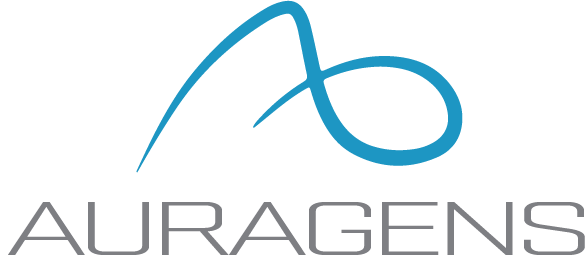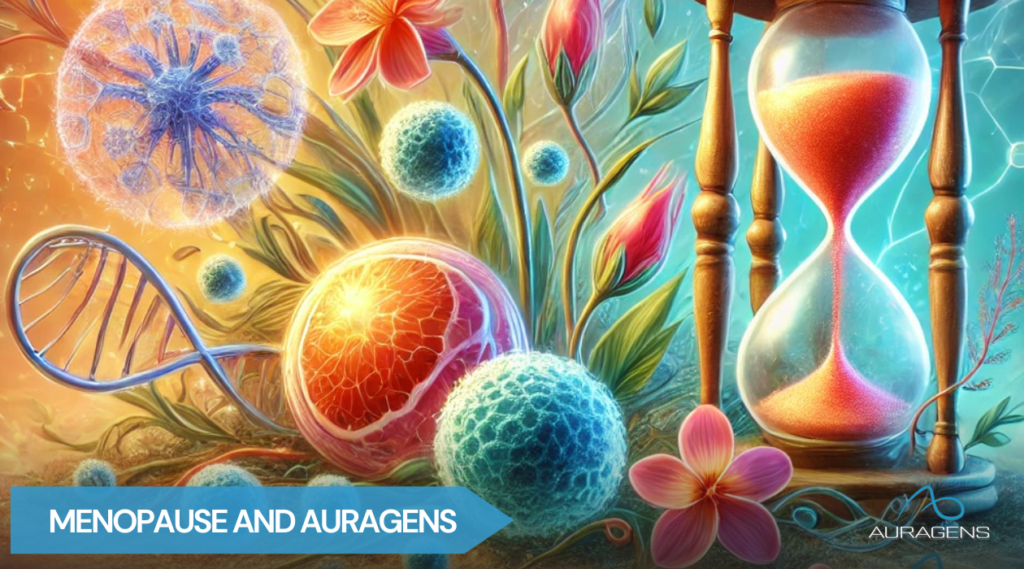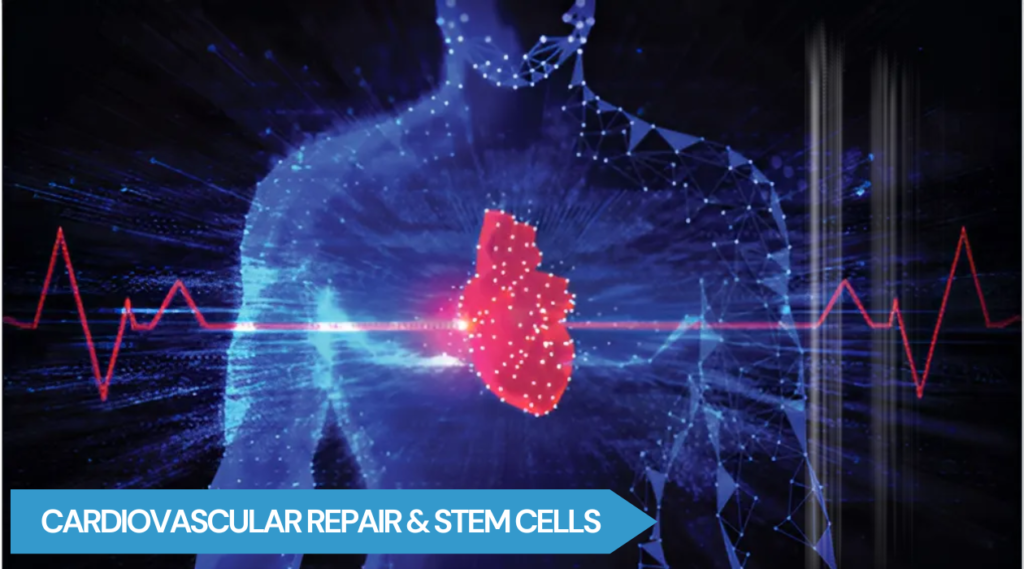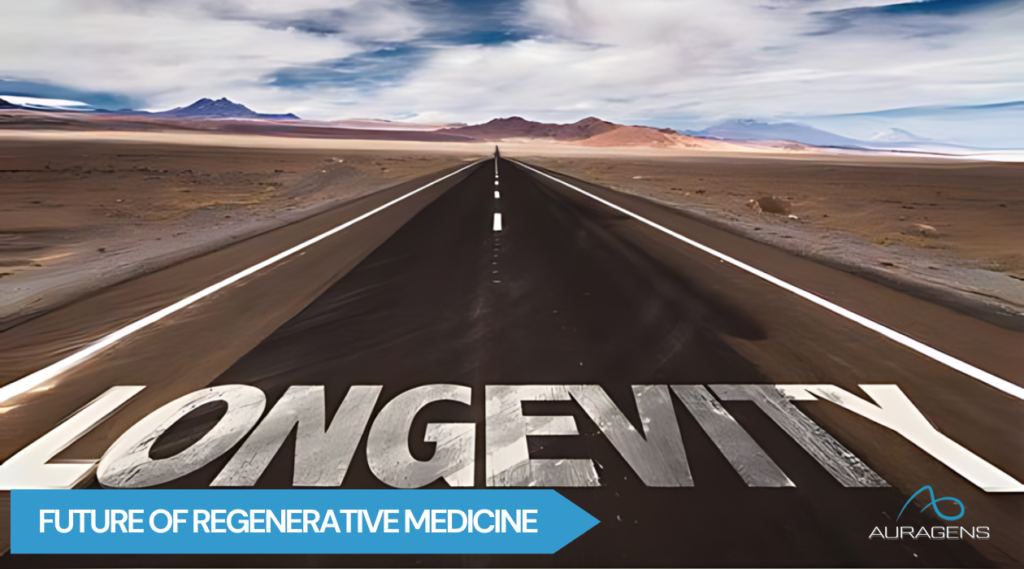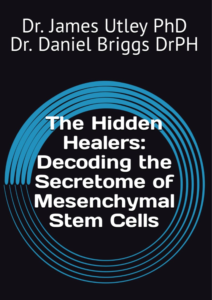

Transforming Cardiovascular Health:
Advanced Stem Cell Therapy at Auragens
CARDIOMYOPATHY | CONGESTIVE HEART FAILURE (CHF) | ISCHEMIC HEART DISEASE
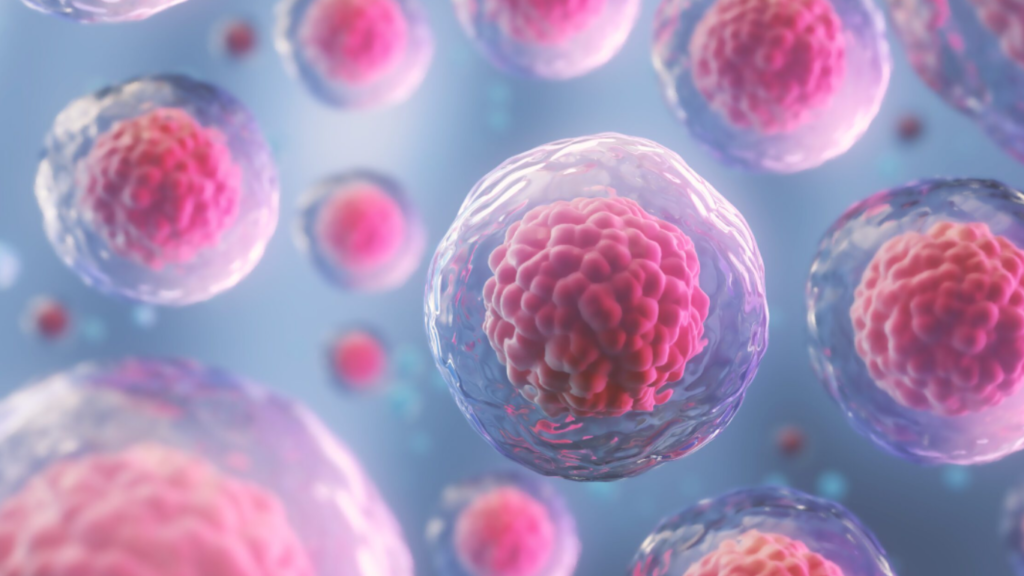
Stem cell therapy offers a cutting-edge solution for cardiovascular conditions by promoting the regeneration of damaged heart tissue, improving blood flow, and reducing inflammation.
This innovative approach targets the root causes of heart disease, offering potential for long-term healing and improved heart function, especially for those with limited treatment options.
At Auragens Stem Cell Treatment Center, we combine advanced research with personalized care, making us the best choice for patients seeking effective, science-driven treatments to enhance their cardiovascular health and quality of life.

Our team of highly experienced medical professionals is available to assist you with any questions you have about stem cell treatment.

Purchase your copy of The Hidden Healers, written by Auragens’ very own Dr. James Utley and Dr. Daniel Briggs
by
Embark on an exploratory odyssey with “The Hidden Healers: Decoding the Secretome of Mesenchymal Stem Cells,” a riveting narrative that unravels the enigmatic powers of the MSC secretome, a cornerstone in the next era of healing and regeneration.
This book is a journey through cutting-edge science, where the secretome’s intricate network of proteins and genetic materials orchestrates the body’s natural repair mechanisms. Discover how leveraging this intricate web can revolutionize treatments for a myriad of conditions, from chronic diseases to acute injuries.
“The Hidden Healers: Decoding the Secretome of Mesenchymal Stem Cells” is more than a book; it’s a journey into the heart of cellular communication and healing.
The potential for stem cells to regenerate heart tissue and restore function after heart attacks or heart failure could change the course of cardiovascular medicine.
– Dr. Deepak Srivastava, President, Gladstone Institutes

SPECIALIZED CARDIOVASCULAR TREATMENTS
Use of Umbilical Cord-Derived Mesenchymal Stem Cells (hUC-MSCs) to Treat Cardiomyopathy
Introduction
Cardiomyopathy is a heart condition that affects the heart muscle, impairing its ability to pump blood effectively. This can lead to severe complications such as heart failure, arrhythmias, and sudden cardiac arrest. Although various treatments exist, managing cardiomyopathy remains challenging. However, recent research suggests that umbilical cord-derived mesenchymal stem cells (UC-MSCs) may offer a promising new treatment for cardiomyopathy due to their regenerative and anti-inflammatory properties (Liu et al., 2024).
What are Mesenchymal Stem Cells?
Mesenchymal stem cells (MSCs) are adult stem cells capable of differentiating into various cell types, such as bone, cartilage, and fat cells. MSCs are found in tissues such as bone marrow, adipose tissue, and umbilical cord tissue. These cells have anti-inflammatory and immunomodulatory properties that facilitate tissue repair and regeneration (Zhang et al., 2022).
What are Umbilical Cord-Derived Mesenchymal Stem Cells?
UC-MSCs are MSCs derived from umbilical cord tissue. Collecting these cells is a non-invasive process that does not harm the mother or the baby. UC-MSCs have several advantages over other MSC sources, such as a higher proliferation rate, a lower risk of viral contamination, and a reduced likelihood of immune rejection due to their immunologically immature state (Ulus et al., 2020).
How Can UC-MSCs Help in Cardiomyopathy?
Research indicates that UC-MSCs can improve cardiac function and reduce inflammation in patients with cardiomyopathy. These cells can differentiate into cardiac cells and promote tissue repair and regeneration. Additionally, UC-MSCs release growth factors and cytokines that encourage the growth and survival of cardiac cells, enhancing cardiac function. Their anti-inflammatory properties help reduce inflammation, which plays a critical role in the development and progression of cardiomyopathy (Gabriyelyan et al., 2023).
Challenges in Using UC-MSCs for Cardiomyopathy
Despite the promise of UC-MSCs in treating cardiomyopathy, challenges remain. One significant issue is determining the optimal dose and delivery method of UC-MSCs, which can vary depending on the severity of the disease and other patient-specific factors. Additionally, long-term safety data on UC-MSC therapy are limited, necessitating further studies to assess the long-term effects and risks of this treatment (Zhang et al., 2019).
Conclusion
UC-MSCs represent a promising treatment option for cardiomyopathy, with potential benefits including improved cardiac function and reduced inflammation. However, further studies are needed to determine the optimal treatment protocols and long-term safety of UC-MSCs. If these challenges can be addressed, UC-MSCs could become a valuable therapy for patients with cardiomyopathy.
References
-
Gabriyelyan, A., Smorzhevskyi, V., & Kudlaï, I. V. (2023). Treatment of a patient with dilated cardiomyopathy using mesenchymal stem cells. Ukrainian Journal of Cardiology. https://doi.org/10.31928/2664-4479-2022.5-6.3742
-
Liu, B., Wei, Y., He, J., Feng, B., Chen, Y., Griffin, M. D., Hynes, S. O., Shen, S., Liu, Y., Cui, H., Ma, J., & O’Brien, T. (2024). Human umbilical cord-derived mesenchymal stromal cells improve myocardial fibrosis and restore miRNA-133a expression in diabetic cardiomyopathy. Stem Cell Research & Therapy. https://doi.org/10.1186/s13287-024-03715-2
-
Ulus, A. T., Mungan, C., Kurtoglu, M., Çelikkan, F. T., Akyol, M., Sucu, M., Toru, M., Gül, S., Cinar, O., & Can, A. (2020). Intramyocardial transplantation of umbilical cord mesenchymal stromal cells in chronic ischemic cardiomyopathy: A controlled, randomized clinical trial (HUC-HEART Trial). International Journal of Stem Cells. https://doi.org/10.15283/IJSC20075
-
Zhang, J., Zhang, S., Yang, Y., & Liu, L. (2022). Transplantation of umbilical cord blood-derived mesenchymal stem cells as therapy for adriamycin-induced cardiomyopathy. Bioengineered. https://doi.org/10.1080/21655979.2022.2061145
-
Zhang, C., Zhou, Y., Lai, X., Zhou, G., Wang, H., Feng, X., Chen, Y., Wu, Y., Wang, T., & Ma, L. (2019). Human umbilical cord mesenchymal stem cells alleviate myocardial endothelial-mesenchymal transition in a rat dilated cardiomyopathy model. Transplantation Proceedings. https://doi.org/10.1016/J.TRANSPROCEED.2019.01.080
Use of Umbilical Cord-Derived Mesenchymal Stem Cells (hUC-MSCs) to Treat Congestive Heart Failure (CHF)
Introduction
Congestive heart failure (CHF) is a chronic condition in which the heart is unable to pump blood effectively to meet the body’s needs. Affecting millions globally, CHF is a leading cause of morbidity and mortality. While conventional treatments such as medications and devices can improve symptoms and outcomes, there is a growing need for therapies that promote heart regeneration and repair. Umbilical-derived mesenchymal stem cells (UC-MSCs) are gaining attention as a potential new treatment for CHF due to their regenerative properties and ability to improve cardiac function (Abouzid et al., 2023).
What are Mesenchymal Stem Cells?
Mesenchymal stem cells (MSCs) are multipotent cells that can differentiate into various cell types, including bone, cartilage, and adipose tissue. These cells are found in multiple tissues, including bone marrow, adipose tissue, and umbilical cord tissue. UC-MSCs have several advantages over other MSC sources, such as easier isolation and lower immunogenicity, making them an attractive option for therapies aimed at tissue regeneration (Wang et al., 2021).
What are Umbilical Cord-Derived Mesenchymal Stem Cells?
UC-MSCs are MSCs that originate from the umbilical cord tissue. Collection of these cells is a non-invasive process that poses no risk to the mother or baby. UC-MSCs offer several benefits, including faster proliferation and a reduced risk of immune rejection due to their immunologically immature state. These characteristics make them highly promising for therapeutic applications in conditions like CHF (Ulus et al., 2020).
The Role of MSCs in CHF Patients
In preclinical studies, UC-MSCs have shown promise in improving cardiac function and promoting heart repair. UC-MSCs secrete various growth factors and cytokines that encourage angiogenesis, reduce inflammation, and modulate immune responses. These cells can also differentiate into cardiac cell types, participating directly in tissue repair. Several clinical trials have demonstrated the safety and efficacy of UC-MSCs in CHF patients. In a phase I/II clinical trial, patients receiving intravenous infusions of UC-MSCs showed improvements in cardiac function and quality of life without significant adverse effects (Gabriyelyan et al., 2023). Another study highlighted that combining UC-MSCs with standard CHF treatment led to significant improvements in cardiac function and exercise capacity compared to standard treatment alone (Wang et al., 2021).
Challenges and Future Directions
Despite promising results, several challenges remain before UC-MSC therapy can be widely used for CHF treatment. Optimizing the timing, dosage, and delivery methods for MSCs is essential to maximizing their therapeutic effects. Additionally, developing standardized manufacturing processes and ensuring quality control measures are critical to making UC-MSC therapy a feasible option. More research is needed to assess long-term safety and efficacy (Abouzid et al., 2023).
Conclusion
Umbilical-derived mesenchymal stem cells represent a promising new therapy for CHF, offering the potential for heart repair and regeneration through various mechanisms, including the secretion of growth factors and differentiation into cardiac cells. While further research is necessary to fully understand their long-term safety and effectiveness, early clinical trials show promising results, indicating that UC-MSCs could provide a valuable new treatment option for CHF patients.
References
-
Abouzid, M. R., Ali, K., Kamel, I., Esteghamati, S., Saleh, A., & Ghanim, M. (2023). The safety and efficacy of human umbilical cord-derived mesenchymal stem cells in patients with heart failure and myocardial infarction: A meta-analysis of clinical trials. Cureus. https://doi.org/10.7759/cureus.49645
-
Gabriyelyan, A., Smorzhevskyi, V., & Kudlaï, I. V. (2023). Treatment of a patient with dilated cardiomyopathy using mesenchymal stem cells. Ukrainian Journal of Cardiology. https://doi.org/10.31928/2664-4479-2022.5-6.3742
-
Ulus, A. T., Mungan, C., Kurtoglu, M., Çelikkan, F. T., Akyol, M., Sucu, M., Toru, M., Gül, S., Cinar, O., & Can, A. (2020). Intramyocardial transplantation of umbilical cord mesenchymal stromal cells in chronic ischemic cardiomyopathy: A controlled, randomized clinical trial (HUC-HEART Trial). International Journal of Stem Cells. https://doi.org/10.15283/IJSC20075
-
Wang, Z., Gao, D., Wang, S., Lin, H., Wang, Y., & Xu, W. (2021). Exosomal microRNA-1246 from human umbilical cord mesenchymal stem cells potentiates myocardial angiogenesis in chronic heart failure. Cell Biology International. https://doi.org/10.1002/CBIN.11664
Use of Umbilical Cord-Derived Mesenchymal Stem Cells (hUC-MSCs) to Treat Ischemic Heart Disease
Introduction
Ischemic heart disease, also known as coronary artery disease, occurs when the blood vessels supplying the heart muscle become narrowed or blocked, leading to reduced blood flow. This condition can cause chest pain, shortness of breath, and even heart attacks. Despite advances in medical and surgical treatments, there remains a significant need for new therapies that can improve the prognosis of patients with ischemic heart disease. One promising area of research is the use of umbilical-derived mesenchymal stem cells (UMSCs) for treating ischemic heart disease (Chang et al., 2021).
What are Umbilical-Derived Mesenchymal Stem Cells?
UMSCs are a type of stem cell isolated from the umbilical cord tissue after delivery. These cells can differentiate into multiple cell types, including bone, cartilage, and muscle cells, making them promising candidates for tissue repair and regeneration. UMSCs also have immunomodulatory properties, which help regulate the immune response, making them beneficial for treating inflammatory conditions like ischemic heart disease (Ulus et al., 2020).
The Role of MSCs in Treating Ischemic Heart Disease
Preclinical studies have demonstrated the potential of UMSCs to improve heart function and reduce scar tissue formation after a heart attack. UMSCs have been shown to stimulate the growth of new blood vessels, improving blood flow to the heart and reducing the risk of future heart attacks. One key advantage of UMSCs is that they are considered safe and non-invasive, as they can be collected from umbilical cord tissue without harm to the mother or baby, making them a readily available and ethical source of stem cells for clinical use (Hassanzadeh et al., 2024).
Several clinical trials have investigated the safety and efficacy of UMSCs for treating ischemic heart disease. For instance, in a phase I clinical trial, UMSCs were injected into the hearts of patients with chronic heart failure. The results indicated that the treatment was safe, with a trend toward improved heart function. Another phase I/II clinical trial involving patients with acute myocardial infarction (heart attack) showed that UMSCs improved heart function and reduced scar tissue formation compared to a control group (Poomani et al., 2022).
Conclusion
The use of UMSCs for treating ischemic heart disease represents a promising area of research. Preclinical studies have shown that UMSCs can improve heart function and reduce scar tissue formation after a heart attack. Clinical trials have also demonstrated the safety and potential efficacy of UMSCs in patients with ischemic heart disease. As research progresses, UMSCs may become a valuable therapy for improving the prognosis of patients with this condition.
References
-
Chang, D., Fan, T., Gao, S., Jin, Y., Zhang, M., & Ono, M. (2021). Application of mesenchymal stem cell sheet to the treatment of ischemic heart disease. Stem Cell Research & Therapy. https://doi.org/10.1186/S13287-021-02451-1
-
Hassanzadeh, A., Shomali, N., Kamrani, A., Nasiri, H., Ahmadian Heris, J., Pashaiasl, M., Sadeghi, M., Sadeghvand, S., Valedkarimi, Z., & Akbari, M. (2024). Detailed role of mesenchymal stem cell (MSC)-derived exosome therapy in cardiac diseases. EXCLI Journal. https://doi.org/10.17179/excli2023-6538
-
Poomani, M. S., Mariappan, I., Perumal, R., Regurajan, R., Muthan, K., & Subramanian, V. (2022). Mesenchymal stem cell (MSCs) therapy for ischemic heart disease: A promising frontier. Global Heart. https://doi.org/10.5334/gh.1098
-
Ulus, A. T., Mungan, C., Kurtoglu, M., Çelikkan, F. T., Akyol, M., Sucu, M., Toru, M., Gül, S., Cinar, O., & Can, A. (2020). Intramyocardial transplantation of umbilical cord mesenchymal stromal cells in chronic ischemic cardiomyopathy: A controlled, randomized clinical trial (HUC-HEART Trial). International Journal of Stem Cells. https://doi.org/10.15283/IJSC20075
Use of Umbilical Cord-Derived Mesenchymal Stem Cells (hUC-MSCs) to Treat Myocardial Infarction
Introduction
Myocardial infarction, also known as a heart attack, occurs when the blood supply to the heart muscle is interrupted, leading to damage and death of heart tissue. It is a common and serious cardiovascular disease that can lead to heart failure, disability, and death. Despite advances in medical therapies, the repair and regeneration of damaged heart tissue remain challenging. However, there is growing interest in the use of stem cells for the treatment of myocardial infarction.
What are Umbilical Derived Mesenchymal Stem Cells?
Stem cells are undifferentiated cells that can differentiate into various cell types and have the potential to regenerate damaged tissue. Mesenchymal stem cells (MSCs) are a type of adult stem cell that can be isolated from various sources, including bone marrow, adipose tissue, and umbilical cord tissue. Umbilical cord-derived MSCs (UC-MSCs) have gained attention as an attractive source of stem cells for regenerative medicine due to their availability, low immunogenicity, and high proliferative potential.
The role of MSCs to treat chronic ischemic cardiomyopathy.
Several preclinical and clinical studies have investigated the use of UC-MSCs for the treatment of myocardial infarction. The mechanism of action of UC-MSCs in myocardial infarction is multifactorial and involves paracrine effects, immunomodulation, and differentiation into cardiomyocyte-like cells. Paracrine effects refer to the ability of UC-MSCs to secrete various growth factors, cytokines, and extracellular vesicles that can promote angiogenesis, reduce inflammation, and enhance tissue repair. For example, UC-MSCs have been shown to secrete vascular endothelial growth factor (VEGF), basic fibroblast growth factor (bFGF), and hepatocyte growth factor (HGF), which can stimulate the formation of new blood vessels and improve the blood supply to the damaged heart tissue. UC-MSCs can also secrete anti-inflammatory cytokines, such as interleukin-10 (IL-10) and transforming growth factor-beta (TGF-β), that can suppress the immune response and reduce the inflammatory damage to the heart tissue. UC-MSCs can also differentiate into cardiomyocyte-like cells and integrate into the damaged heart tissue. Although the degree of differentiation is limited, it has been suggested that UC-MSCs can promote the regeneration of the damaged heart tissue by enhancing the survival and function of the remaining cardiomyocytes. Several clinical studies have investigated the safety and efficacy of UC-MSCs in patients with myocardial infarction. For example, a phase I clinical trial evaluated the safety and feasibility of intracoronary infusion of UC-MSCs in patients with acute myocardial infarction. The study showed that the infusion of UC-MSCs was safe and well-tolerated, with no significant adverse events reported. Moreover, the study showed that UC-MSCs improved the left ventricular ejection fraction, a measure of the heart’s pumping function, at six months after the infusion. Another clinical study investigated the efficacy of intracoronary infusion of UC-MSCs in patients with chronic ischemic cardiomyopathy, a condition characterized by the loss of heart muscle due to chronic ischemia. The study showed that UC-MSCs improved the left ventricular ejection fraction and the exercise capacity of the patients at six months after the infusion. The study also showed that UC-MSCs reduced the levels of inflammatory markers, suggesting a potential anti-inflammatory effect of UC-MSCs in the damaged heart tissue.
Conclusion
In conclusion, the use of UC-MSCs for the treatment of myocardial infarction is a promising approach that has shown safety and efficacy in preclinical and clinical studies. UC-MSCs can promote tissue repair, reduce inflammation, and improve the function of the damaged heart tissue. However, further studies are needed.
References
Kusuma, G. D., Carthew, J., Lim, R., & Frith, J. E. (2018). Effect of the Microenvironment on Mesenchymal Stem Cell Paracrine Signaling: Opportunities to Engineer the Therapeutic Effect. Stem cells and development, 27(8), 503-517.
Hare, J. M., Fishman, J. E., Gerstenblith, G., DiFede Velazquez, D. L., Zambrano, J. P., Suncion, V. Y., … & Mancini Davies, G. (2012). Comparison of allogeneic vs autologous bone marrow–derived mesenchymal ‐ stem cells delivered by transendocardial injection in patients with ischemic cardiomyopathy: the POSEIDON randomized trial. JAMA, 308(22), 2369-2379.
Use of Umbilical Cord-Derived Mesenchymal Stem Cells (hUC-MSCs) to Treat Stroke
Introduction
Stroke is a debilitating condition that can result in significant long-term disability or even death. According to the World Health Organization, stroke is the second leading cause of death worldwide, with over 13 million cases each year. There are several treatments available for stroke, including medications, surgery, and physical therapy. However, many patients still experience significant disability and loss of function even after receiving these treatments.
One promising area of research for the treatment of stroke is the use of umbilical derived mesenchymal stem cells (UMSCs). Mesenchymal stem cells (MSCs) are a type of adult stem cell that can be found in many tissues throughout the body, including bone marrow, adipose tissue, and the umbilical cord. UMSCs are a particularly promising type of MSC for stroke treatment due to their unique properties, including their ability to differentiate into different types of cells, their anti-inflammatory properties, and their ability to promote tissue repair and regeneration.
The role of MSCs to treat stroke.
UMSCs have been shown to be effective in treating stroke in several different ways. First, UMSCs have been shown to improve the survival and function of brain cells that have been damaged by stroke. UMSCs can migrate to the site of the injury and release growth factors that stimulate the growth of new blood vessels and promote the regeneration of damaged tissue.
Second, UMSCs have been shown to have anti-inflammatory properties that can help reduce the inflammation that often accompanies stroke. Inflammation can exacerbate the damage caused by stroke and can contribute to long-term disability. UMSCs can release anti-inflammatory molecules that help reduce inflammation and promote healing.
Third, UMSCs can promote the formation of new blood vessels, which can help restore blood flow to the brain after a stroke. This is particularly important in cases where the stroke has caused significant damage to the blood vessels in the brain, making it difficult for blood to flow properly.
Finally, UMSCs can help protect the brain from future damage by promoting the growth of new neurons and other brain cells. This can help reduce the risk of future strokes and can improve overall brain function.
Clinical trials investigating the use of UMSCs in stroke treatment have shown promising results. For example, a study published in the journal Stem Cells Translational Medicine in 2017 found that treatment with UMSCs improved functional outcomes in patients with acute ischemic stroke (a type of stroke caused by a blockage in a blood vessel in the brain). Another study published in the same journal in 2020 found that UMSCs could improve cognitive function in patients with chronic ischemic stroke (a type of stroke that occurs over time due to reduced blood flow to the brain).
Conclusion
In conclusion, the use of umbilical derived mesenchymal stem cells (UMSCs) in stroke treatment is a promising area of research. UMSCs have been shown to have several properties that make them effective in promoting the regeneration of damaged tissue, reducing inflammation, and protecting the brain from future damage. Clinical trials investigating the use of UMSCs in stroke treatment have shown promising results, and further research in this area is warranted.
In patients with heart attacks, stem cell therapy can lead to the repair and regeneration of damaged heart muscle, significantly improving long-term outcomes.
– Dr. Doris Taylor, Director of Regenerative Medicine Research, Texas Heart Institute

